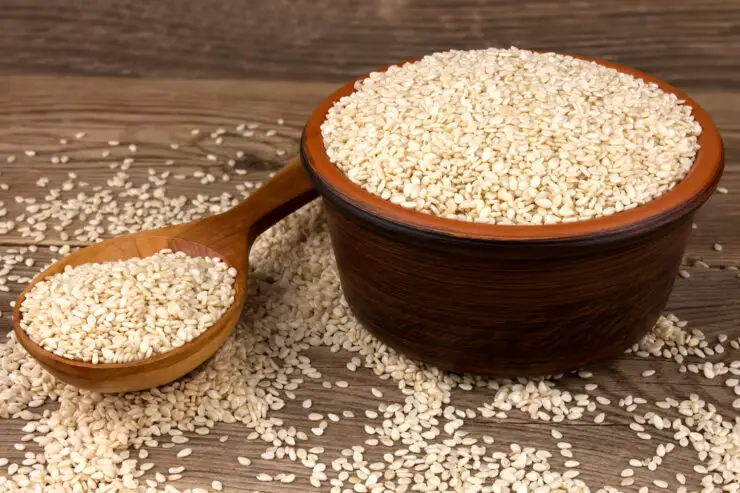As an Amazon Associate I earn from qualifying purchases. Please read the disclaimer for more info.
If you are looking for substitutes for sesame seeds in your cooking, you have come to the right place.
In this post, we will discuss 10 delicious sesame seed substitutes that you can use instead!
Sesame seeds are a popular ingredient in many dishes, but they can be difficult to find sometimes.
If you are running low on them or if they are not available where you live, don’t worry – plenty of other options are available to you.
Check out our list of the best sesame seed substitutes below, and start cooking some amazing meals today.
Related: Hulled Sesame Seeds vs. Unhulled Sesame Seeds. What’s the Difference?
What Are Sesame Seeds?
Sesame seeds are edible seeds most often associated with hamburger buns, many Asian cuisines, and the popular Middle Eastern condiment tahini.
Evidence shows that sesame seeds have been eaten since ancient times and are used as a food source and a medicinal remedy. Sesame seeds range in colors from white to black but can also be found in red and yellow varieties.
These tiny seeds are incredibly nutritious, containing iron, zinc, vitamin B-6, protein, magnesium, and even important fatty acids, making them a healthy addition to any meal or snack.
10 Substitutes for Sesame Seeds
Sunflower Seeds
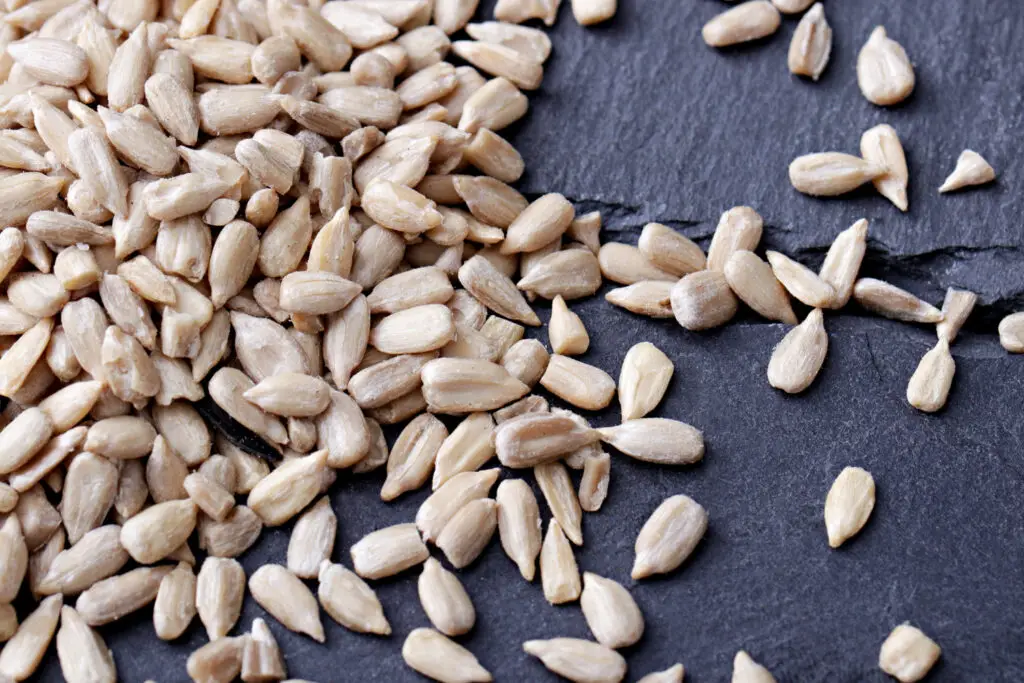
Sunflower seeds are a great sesame seed substitute in recipes, as they offer a delicious nutty flavor that many people love.
They provide a crunchy texture to salads and vegetables and can be used to top off baked goods such as bread, cookies, and muffins. Furthermore, sunflower seeds contain numerous health benefits, such as vitamins E, B1, and selenium which contribute to healthy hair, skin, nails, and blood.
Although sunflower seeds may not have the same strong flavor as sesame seeds, they still offer an enjoyable taste with a mild sweetness that brings a meal together nicely.
It’s no wonder we think sunflower seeds are one of the best sesame seed substitutes.
Poppy Seeds
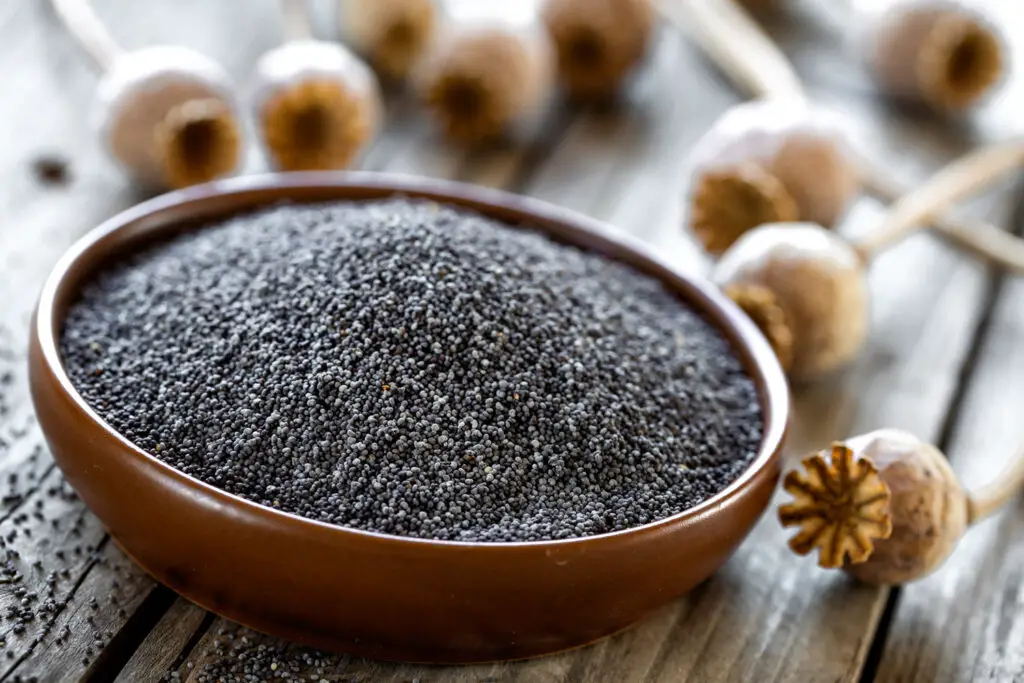
Poppy seeds are an ideal substitute for sesame seeds in recipes that call for a nutty, slightly sweet flavor.
They are smaller and much darker than sesame seeds, providing a mild flavor when cooked.
Unlike many other seeds, poppy seeds contain essential minerals such as magnesium, zinc, iron, and calcium that help the body regulate hormones, metabolize carbohydrates and fats, and boost the immune system.
Furthermore, poppy seeds can be added to nearly any dish – from salads and stir-fried dishes to baking – or used as bread toppings by sprinkling them on top of bagels and sandwiches for added texture.
Whether looking for a unique flavor or trying to add more health benefits to your meal, poppy seeds are the perfect alternative to their well-known relative: the sesame seed.
Hemp Seeds
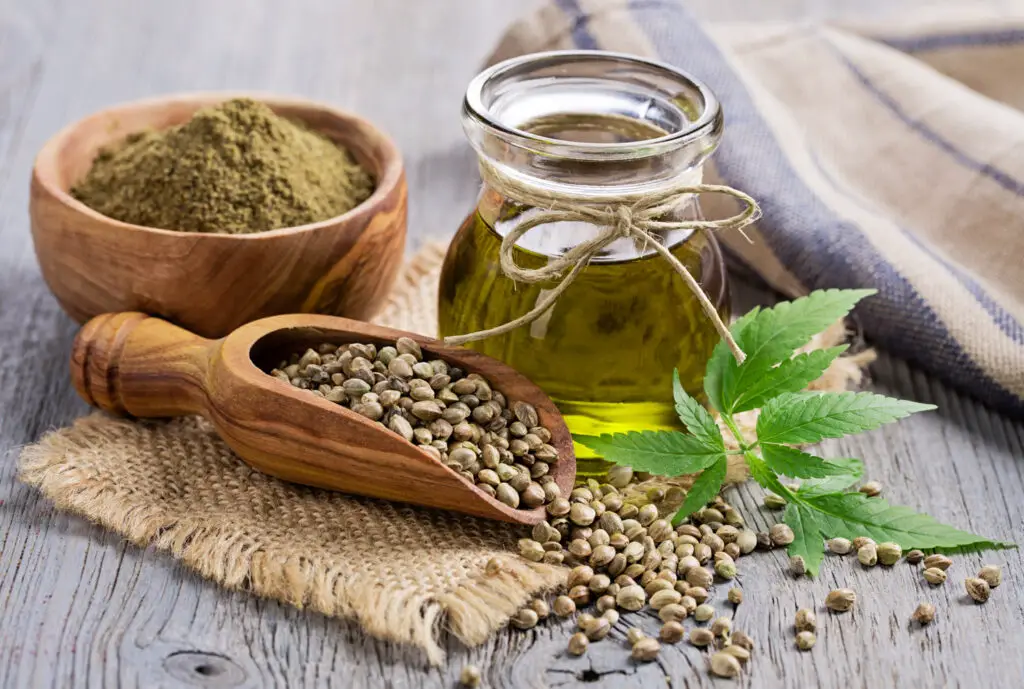
Hemp seeds are an excellent substitute for sesame seeds in recipes and cooking.
Not only do hemp seeds have a unique earthy and nutty taste that shines in various dishes, but they are also incredibly nutritious.
Hemp seeds are high in healthy fats, minerals, vitamins, and complete proteins and contain all essential amino acids.
They make an excellent addition to salads and smoothies because they’re so nutrient-dense.
They have a soft texture that blends nicely with other ingredients, making hemp seeds the perfect sesame seeds substitute.
Flax Seeds
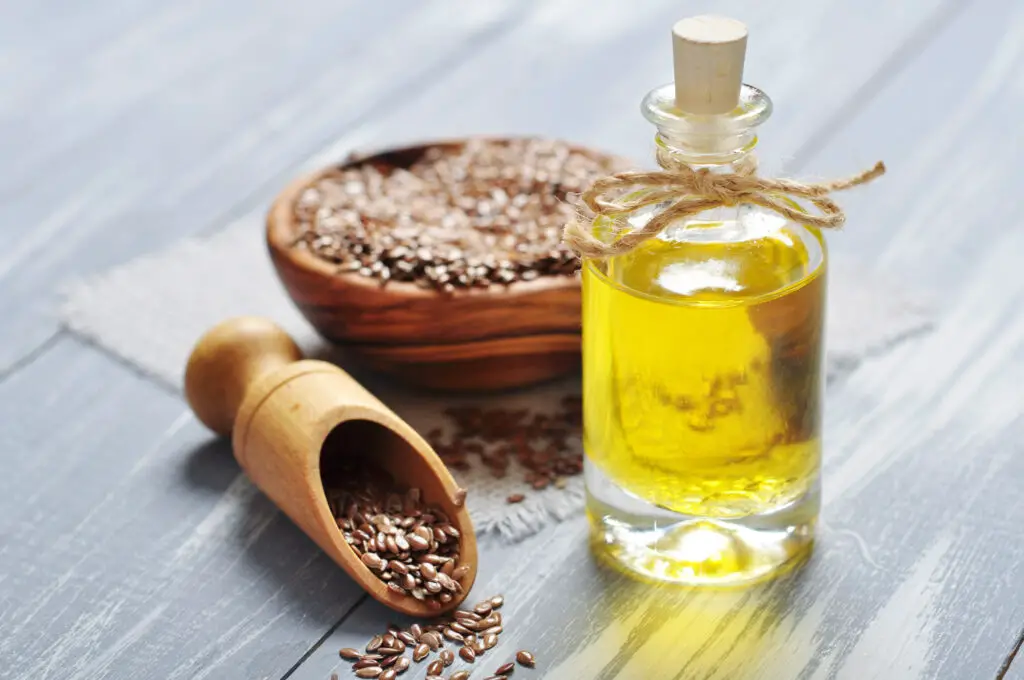
Flax seeds are a great option for those seeking a healthier and flavorful sesame seeds substitute.
They offer an even nuttier taste than sesame, with just the right amount of crunch.
Flax seeds have high levels of omega-3 fatty acids and are an excellent source of fiber and lignans, making them a nutritious way to boost your diet.
Flax seeds also help prevent cardiovascular problems such as stroke and heart attack due to their anti-inflammatory properties.
Additionally, they can be used as an egg substitute in vegan baking, making dishes with flax creative and delicious without sacrificing nutrition or flavor.
Despite having a slightly bitter flavor, flax seeds are still adequate substitutes for sesame seeds.
Sesame Oil
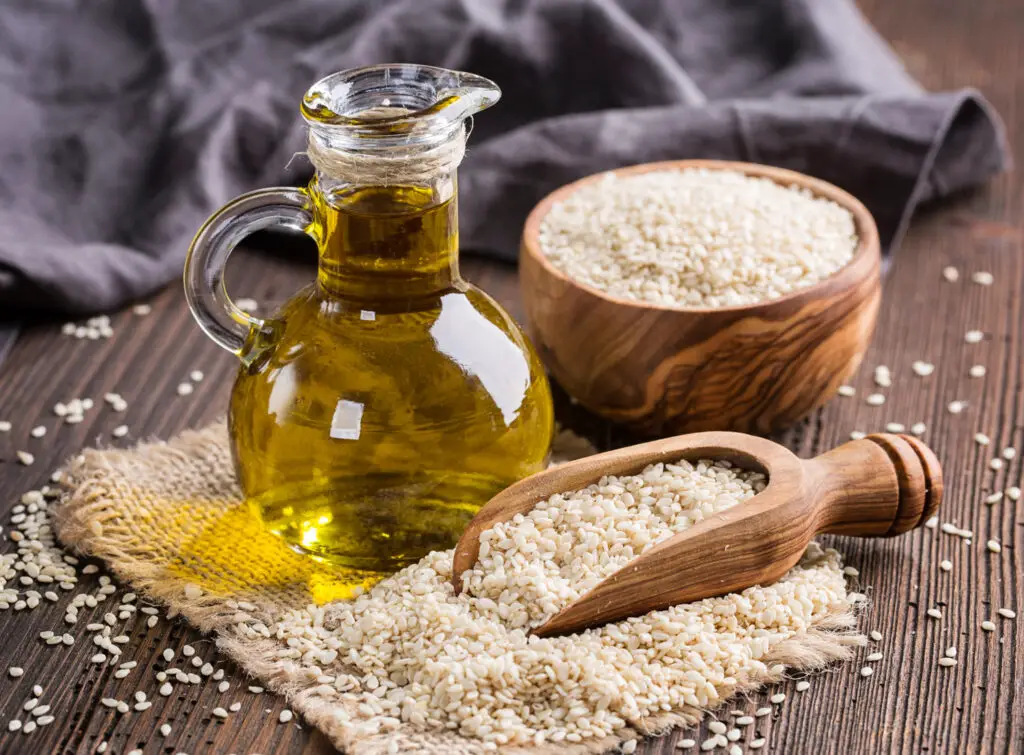
Sesame oil is sometimes called the “queen of the oils” due to its delicious flavor and nutritional benefits.
Unlike sesame seeds, sesame oil has a very high smoking point, making it perfect for sautéing, stir-frying, and even deep frying.
The flavor of sesame oil is much more intense than sesame seeds. It can be used as an ingredient in many dishes, from drizzled-over salads to add to soups or marinades.
Sesame oil is a great way to add the sesame seeds flavor to both sweet and savory dishes while not worrying about the distribution of sesame seeds throughout the dishes.
Related: 12 Substitutes for Dark Soy Sauce
Chia Seeds
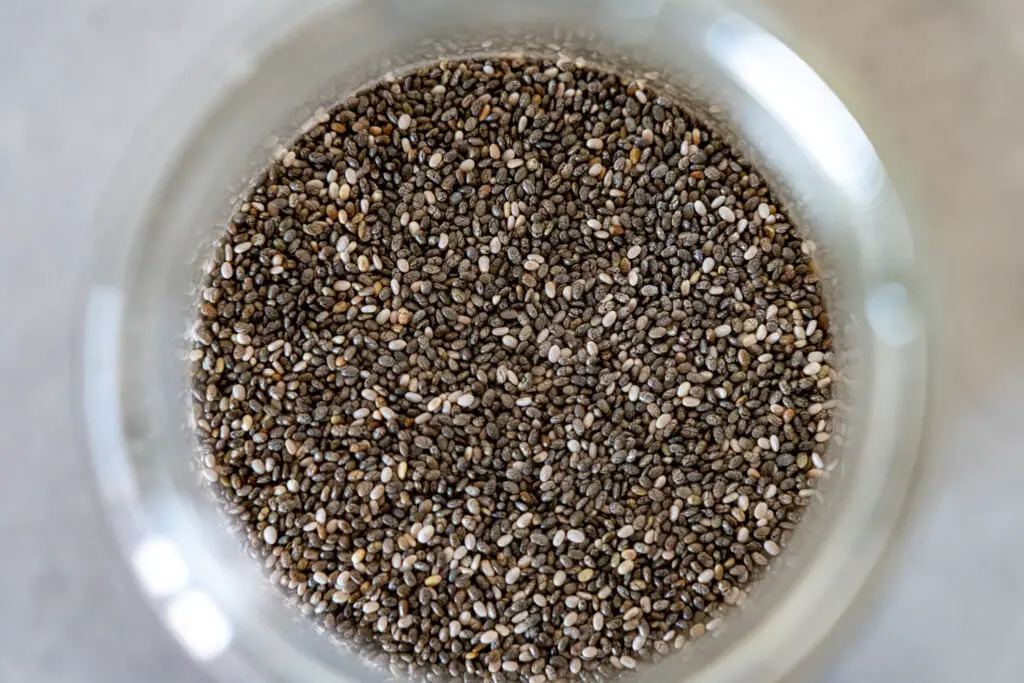
Chia seeds are a wonderfully versatile ingredient that can easily replace sesame seeds in stir-fries and salad dressings.
They have similar crispy texture and sesame flavor, but substituting them in a recipe can bring some added benefits.
Chia seeds are packed full of vitamins, minerals, and omega-3 fatty acids, helping to increase nutrient content without compromising a dish’s deliciousness.
Moreover, because chia absorbs so much water or other liquids you add to it, it can form a gel-like consistency, making it ideal for replacing eggs too!
Chia seeds are a superior substitute for sesame seeds due to their high nutrient content.
Lastly, chia seeds benefit those with a sesame allergy because the taste and appearance of chia can make similar dishes while avoiding any irritation or allergic reactions.
Pumpkin Seeds
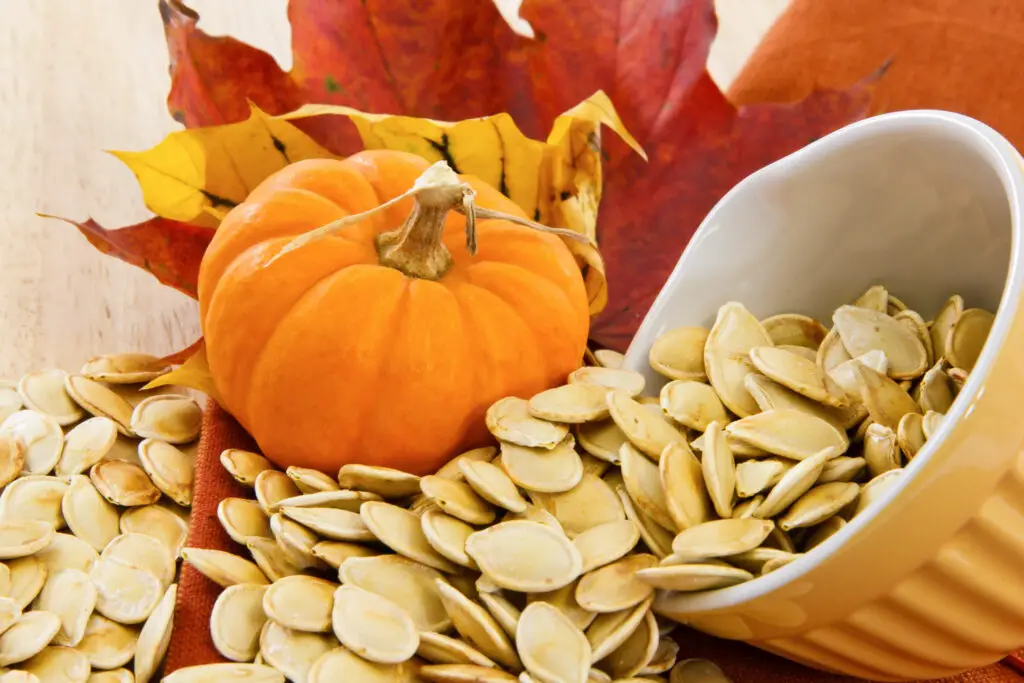
Pumpkin seeds offer an excellent alternative to sesame seeds in dishes that call for a nutty, earthy flavor.
Not only are pumpkin seeds less expensive than sesame seeds, but they also boast more health benefits, including the power to reduce inflammation, protect heart health and reduce signs of aging due to their packed doses of essential vitamins and minerals such as zinc, magnesium, and vitamin E.
To add them to a dish, lightly toast the raw seeds in a skillet with a light dusting of salt over low heat or lightly oil and sprinkle them before baking.
Pumpkin seeds have a much milder flavor than sesame which means they easily meld with other ingredients without overpowering them – making them perfect for adding crunch and flavor to salads, flatbreads, and grain bowls.
Related: Best Substitutes for Nigella Seeds
Chopped Nuts
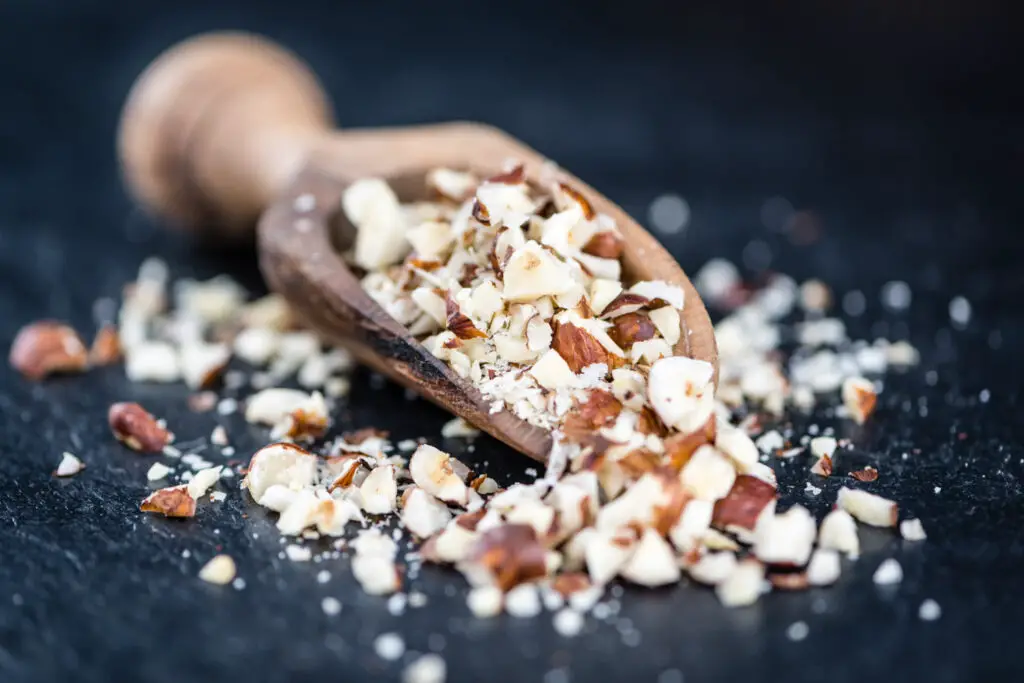
In baking and cooking, chopped nuts can make a great substitute for sesame seeds.
When used in baking recipes, they offer a nutty flavor and texture to complement the ingredients.
And when used in cooking, they can offer a unique crunchiness that sesame seeds don’t have. Chopped nuts also provide an added bonus of some essential fatty acids and healthy sources of plant-based protein.
They are a high-fiber source of nutrition that works easily into various recipes without upsetting the balance of flavors or textures.
Overall, chopped nuts perfectly substitute sesame seeds and can add more nutritional value to any dish.
Pine Nuts
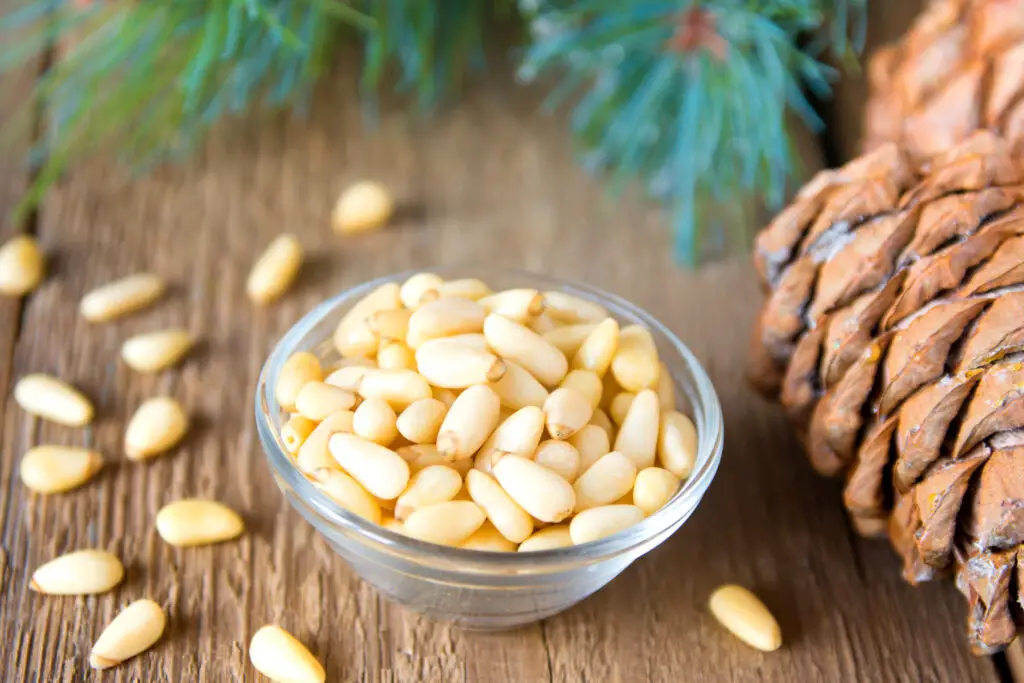
Pine nuts have become one of the best substitutes for sesame seeds because of their slightly sweet taste, rich flavor, and versatility in cooking.
Not only can they be used as part of salads or pasta dishes, but when toasted, the nuts can also add a crunchy texture and a hint of sweetness to various desserts.
Additionally, pine nuts are a good source of vitamins and minerals like manganese which helps the body form connective tissues and helps maintain normal blood sugar levels.
With so many health benefits and their agreeable flavor, it is no surprise that pine nuts have become such a popular option for those looking to add flavor and nutrition to their diet!
Related: Best Substitutes for Poppy Seeds
Pistachio Seeds
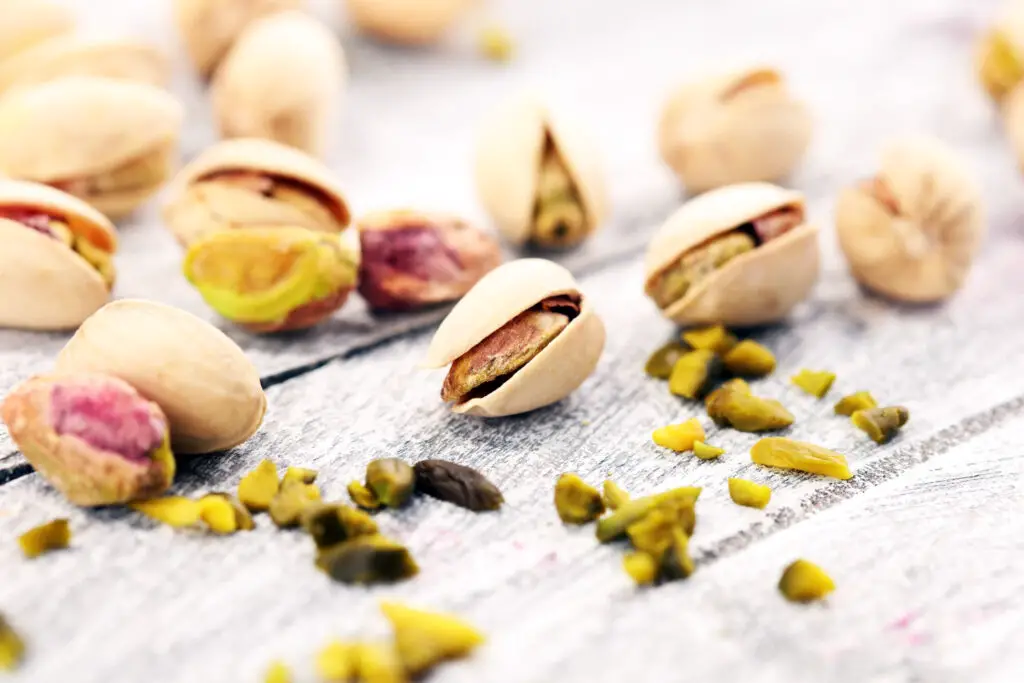
Pistachio seeds offer a crunchy alternative to sesame seeds that provide many of the same benefits. Like sesame seeds, pistachio seeds are high in protein, B vitamins, and minerals like copper, manganese, and phosphorous, making them a great snack choice.
However, they must be eaten unsalted, as some salt varieties often contain large amounts of sodium.
In addition to being healthy, pistachio seeds make a delicious topping for homemade pizzas and salads, as they have a rich nutty flavor that goes well with most dishes.
Whether you’re using them as a diet-friendly snack or looking for something to sprinkle on top of your food, you’ll be pleasantly surprised with the versatility and flavor that pistachios can bring to your meals.
How to Store Sesame Seeds
Sesame seeds should be stored in an airtight container in a cool, dry place away from direct light. This helps to keep them fresh longer and prevents them from going rancid.
If stored properly, sesame seeds can last up to 6 months. If you’re unsure about freshness, give them a sniff – fresh sesame seeds have a mild, nutty aroma. If they have a rancid smell, it’s time to toss them out and get a new batch.
Healthful Benefits of Sesame Seeds
Sesame seeds are an excellent source of healthful nutrients!
A single tablespoon of dried, hulled sesame seeds provides 88 milligrams of calcium, about 10% of the recommended daily intake for adults.
Sesame seeds also contain other valuable minerals, such as magnesium and phosphorus.
Sesamin, a unique natural polyphenol compound found in sesame seeds, has been shown to decrease the risk of certain chronic illnesses; one mouse study published on Pubmed demonstrated how it helped improve overall metabolic health.
Furthermore, sesame oil has potent antibacterial and antifungal properties that can protect against food-borne illnesses and infections.
Black Sesame Seeds vs White Sesame Seeds
Black sesame seeds have a stronger and nuttier flavor than white sesame seeds’ milder, sweeter taste.
The texture between the two is also vastly different – black sesame seeds are firm, crunchy, and slightly rougher to the tongue, while white sesame seeds have a softer texture.
These subtle yet significant differences make both types of sesame seeds desirable in their own unique way, and they can be used interchangeably in recipes that call for either one or both of them.
Whether you use black or white, adding a few sesame seeds to any dish adds an instant boost of sweetness, crunch, and nutty goodness.
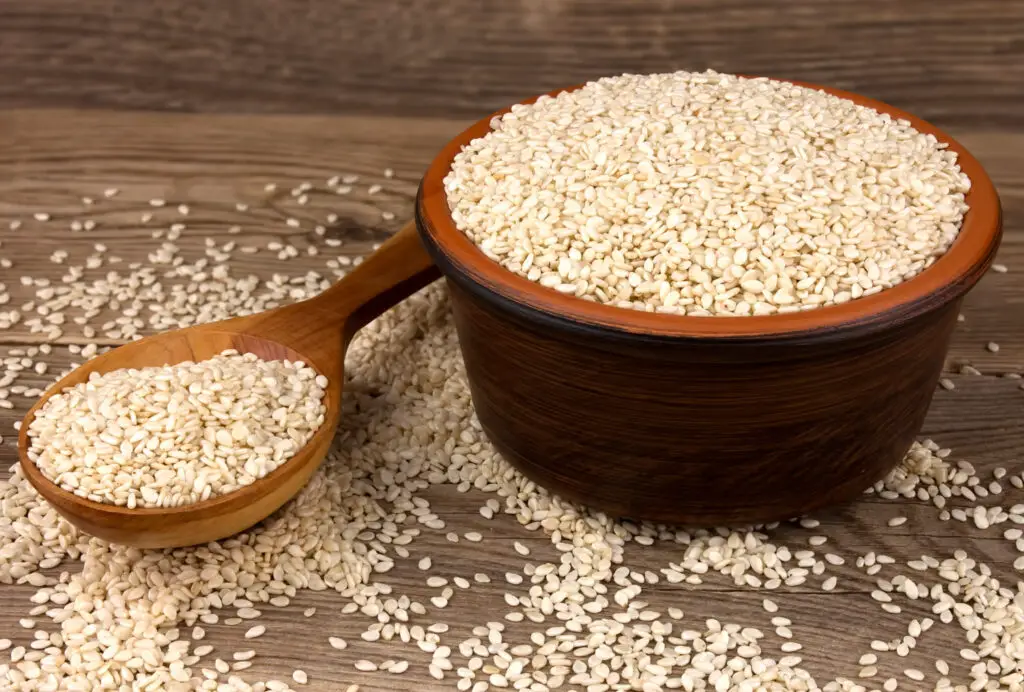
Conclusion for Substitutes for Sesame Seeds
In conclusion, sesame seeds are a great way to add flavor and texture to any dish.
But if you’re looking to substitute sesame seeds for an alternative that can provide more nutritional value, then any number of seeds, such as chia seeds, hemp seeds, and other edible seeds, as well as some nuts, are all excellent substitutes.
These options offer unique flavors, textures, and health-related benefits that can help make meals more enjoyable and nutritious.
So no matter what you’re cooking, plenty of delicious options are available when substituting sesame seeds!
FAQ
Tahini is a creamy paste made from ground sesame seeds. It’s incredibly easy to make and only requires sesame seeds and oil.
To create the tahini, add 1/2 cup of sesame seeds to a food processor or blender along with 3 tablespoons of oil (olive or avocado oil works best).
Then blend the ingredients together until they form a smooth paste. The tahini can be stored in an airtight container and will last up to one month when refrigerated.
Yes, sesame seeds are safe to eat raw.
However, it is important to note that consuming large amounts of raw unsalted sesame seeds can be difficult on the digestive system and may lead to indigestion or other gastrointestinal upset.
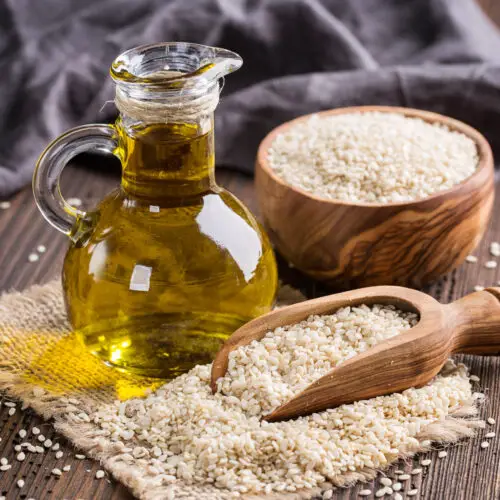
10 Substitutes for Sesame Seeds
Ingredients
- Sunflower Seeds
- Poppy Seeds
- Hemp Seeds
- Flax Seeds
- Sesame Oil
- Chia Seeds
- Pumpkin Seeds
- Chopped Nuts
- Pine Nuts
- Pistachio Seeds
Instructions
- Decide on the type of substitute for sesame seeds you need based on texture and flavor.
- Pick the best fit from the above list of substitutes.
- Add to the recipe the proportions required to match the flavor and texture of the sesame seeds.

